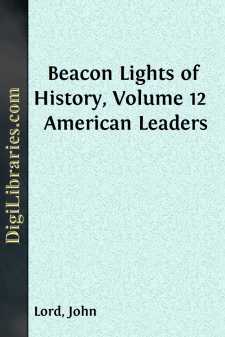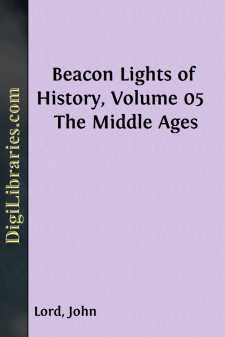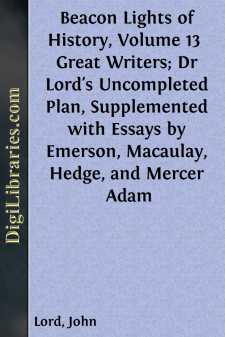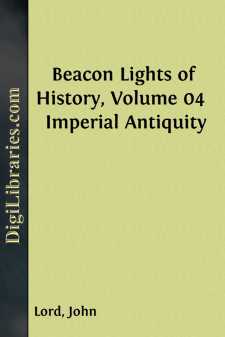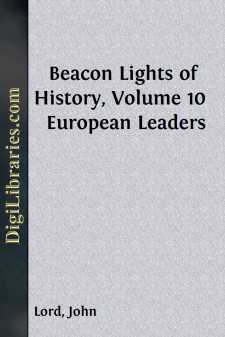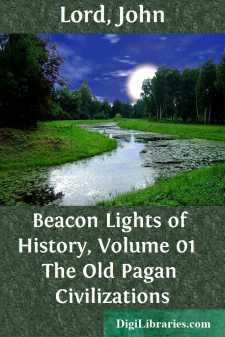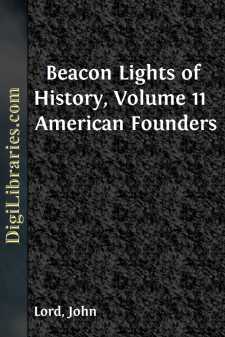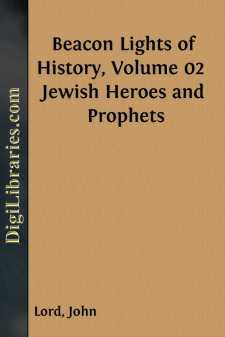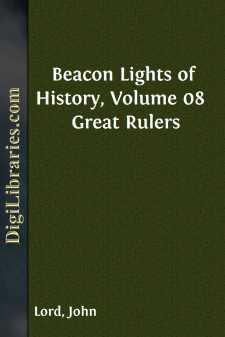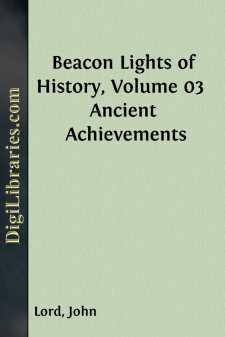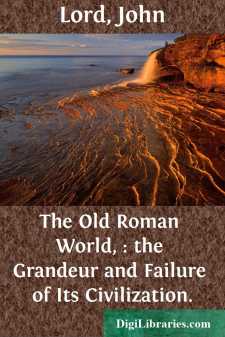Categories
- Antiques & Collectibles 13
- Architecture 36
- Art 48
- Bibles 22
- Biography & Autobiography 813
- Body, Mind & Spirit 142
- Business & Economics 28
- Children's Books 15
- Children's Fiction 12
- Computers 4
- Cooking 94
- Crafts & Hobbies 4
- Drama 346
- Education 46
- Family & Relationships 57
- Fiction 11828
- Games 19
- Gardening 17
- Health & Fitness 34
- History 1377
- House & Home 1
- Humor 147
- Juvenile Fiction 1873
- Juvenile Nonfiction 202
- Language Arts & Disciplines 88
- Law 16
- Literary Collections 686
- Literary Criticism 179
- Mathematics 13
- Medical 41
- Music 40
- Nature 179
- Non-Classifiable 1768
- Performing Arts 7
- Periodicals 1453
- Philosophy 64
- Photography 2
- Poetry 896
- Political Science 203
- Psychology 42
- Reference 154
- Religion 513
- Science 126
- Self-Help 84
- Social Science 81
- Sports & Recreation 34
- Study Aids 3
- Technology & Engineering 59
- Transportation 23
- Travel 463
- True Crime 29
Beacon Lights of History, Volume 12 American Leaders
by: John Lord
Description:
Excerpt
1782-1850.
THE SLAVERY QUESTION.
The extraordinary abilities of John C. Calhoun, the great influence he exerted as the representative of Southern interests in the National Legislature, and especially his connection with the Slavery Question, make it necessary to include him among the statesmen who, for evil or good, have powerfully affected the destinies of the United States. He is a great historical character,--the peer of Webster and Clay in congressional history, and more unsullied than either of them in the virtues of private life. In South Carolina he was regarded as little less than a demigod, and until the antislavery agitation began he was viewed as among the foremost statesmen of the land. His elevation to commanding influence in Congress was very rapid, and but for his identification with partisan interests and a bad institution, there was no office in the gift of the nation to which he could not reasonably have aspired.
John Caldwell Calhoun was born in 1782, of highly respectable Protestant-Irish descent, in the Abbeville District in South Carolina. He was not a patrician, according to the ideas of rich planters. He had but a slender school education in boyhood, but was prepared for college by a Presbyterian clergyman, entered the Junior Class of Yale College in 1802, and was graduated with high honors. He chose the law for his profession, studied laboriously for three years, spending eighteen months at the then famous law school at Litchfield, Connecticut, and gave great promise, in his remarkable logical powers, of becoming an eminent lawyer.
Whatever abilities Mr. Calhoun may have had for the law, it does not appear that he practised it long, or to any great extent. His taste and his genius inclined him to politics. And, having married a lady with some fortune, he had sufficient means to live without professional drudgery. After serving a short time in the State Legislature of South Carolina, he was elected a member of Congress, and took his seat in the House of Representatives in 1811, at the age of twenty-nine. From the very first his voice was heard. He made a speech in favor of raising ten thousand additional men to our army to resist the encroachments of Great Britain and prepare for hostilities should the country drift into war. It was an able speech for a young man, and its scornful repudiation of reckoning the costs of war against insult and violated rights had a chivalric ring about it: "Sir, I here enter my solemn protest against a low and calculating avarice entering this hall of legislation. It is only fit for shops and counting-houses.... It is a compromising spirit, always ready to yield a part to save the residue." Here at an early date we hear the key-note of his life,--hatred of compromises and half-measures. If it were necessary to go to war at all, he would fight regardless of expense.
Thus Calhoun began his public career as an advocate of war with Great Britain. The old Revolutionary sores had not yet had time to heal, and there was general hostility to England, except among the Virginia aristocrats and the Federalists of the North....


